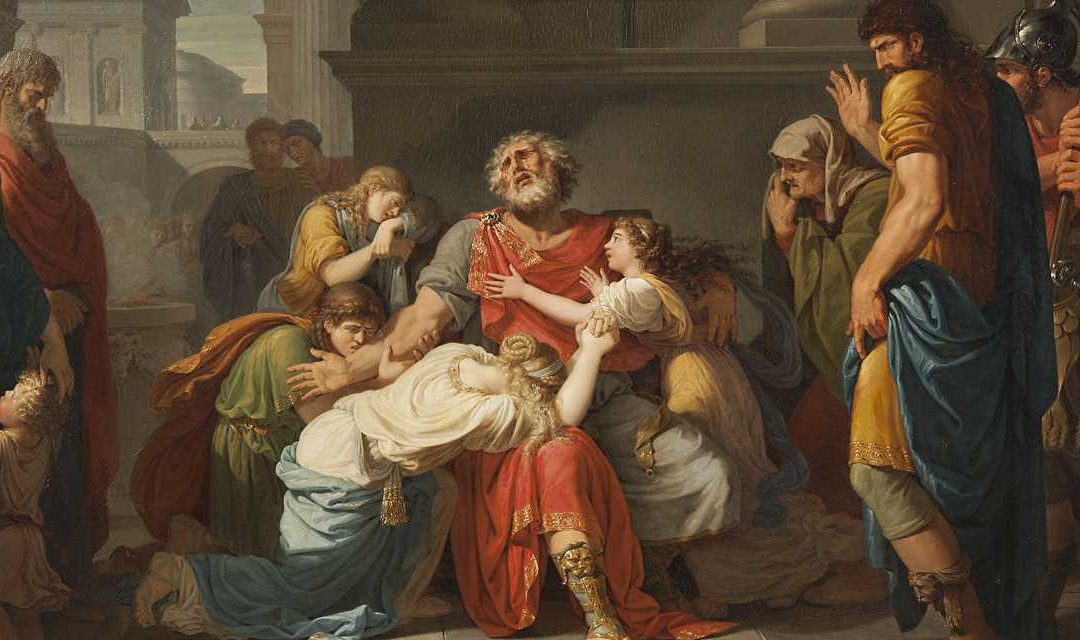Whatsoever things are true, whatsoever things are honest, whatsoever things are just, whatsoever things are pure, whatsoever things are lovely, whatsoever things are of good report; if there be any virtue, if there be any praise, think on these things, St Paul teaches us.
This ethical paideia does not seem to encourage us to entertain ourselves with the violence of a city in conflict with itself, brothers in covetous competition with one another for a crown, kings devoid of wisdom wielding tyrannical power, children dangerously defiant of their parents, parents mercilessly sacrificing their own children to a living death, or young lovers slaughtering themselves on the altar of forbidden love. Perhaps we see enough of this on an average afternoon in Roncesvalles, without needing mimesis to show it forth again!
Nomos (Creon) is in opposition to Physis (Antigone): the dead go unburied and the living are buried alive. Only the author of both law and nature can set this land in order. George Eliot, in her essay ‘The Antigone and its Moral’ (1856) perceived that “the struggle between Antigone and Creon represents that struggle between elemental tendencies and established laws by which the outer life of man is gradually and painfully being brought into harmony with his inward needs.” Perhaps neither Eliot nor most of the Greeks realized that the deep inner man of the heart’s yearning for harmony can only be satisfied through submission to the perfect law of Christ the Logos. However, in articulating that struggle, the work of art points to the need for Christ in a world where the law of the state, the will of the individual and the capricious fate doled out by the imaginary gods cannot be reconciled. Thebes is a city driven by misdirected virtue. Its citizens believe in a divine power greater than themselves and, by depicting this hierarchy, Sophocles encourages the real Athenian citizens in the audience to fear the gods, seek wisdom and submit to proper authority. Like the Athenians (although, regrettably, more sober and less athletic, no doubt) we must allow our response to be guided by the dynamic chorus.
We do learn from art, so long as we remember that art is not a lesson, per se. C. S. Lewis in ‘An Experiment In Criticism’ (1961) reminds us of the dangers of praising dramatists “as if they are doing the work of philosophers and theologians”. We must not neglect the “qualities which belong to their work as inventions or designs”, especially when our students and teachers have put so many hours of careful craft into beautifully incarnating the words of the text in this production.
No moralizing can ever touch the real meaning of tragedy. Lewis advises the audience of a tragedy that “true enjoyment must be spontaneous and compulsive and look to no remoter end.” Immerse yourself in the world of the play this evening and know that, when the lights are extinguished at the denouement, there is a light that shines in the darkness, and the darkness has not overcome it.
Written by Sarah-Jane Bentley


